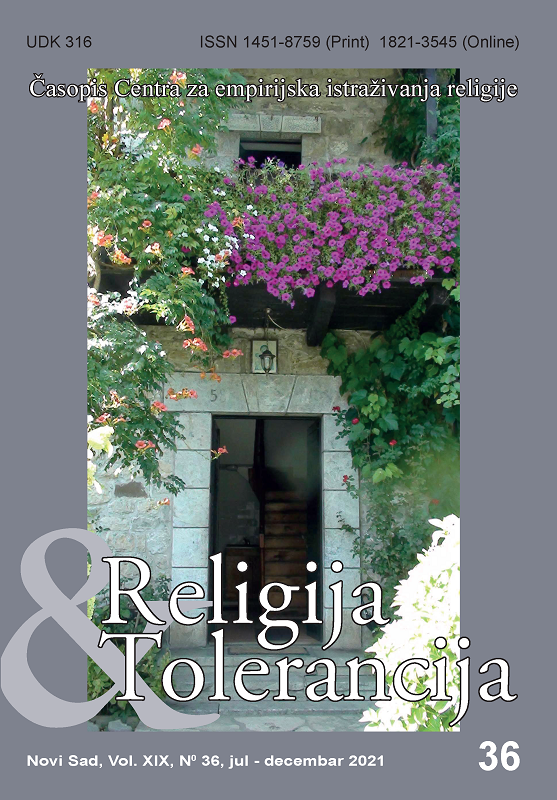СИМБОЛИКА БРОЈА ЧЕТРДЕСЕТ ОД СТАРОГ ЕГИПТА ДО БАЛКАНА
THE SYMBOLISM OF THE NUMBER FORTY FROM ANCIENT EGYPT TO THE BALKANS
Author(s): Saša BradaševićSubject(s): History, Theology and Religion
Published by: Centar za empirijska istraživanja religije (CEIR)
Keywords: symbolism; forty; ancient Egypt; ancient Greece; Pythagoras; birth; transcendence; customs
Summary/Abstract: Numbers are the basis of ancient philosophy. Behind all natural and social phenomena, a number of relationships can be established. Numbers with similar symbolism appear in different cultures. The oldest written monuments speak of the symbolism of numbers among the ancient Egyptians. Among the Pythagoreans, numbers had the status of a shrine, because they were a pure and direct indicator of the intelligent design of the cosmos. Through the close connection they had with ancient Egypt, the philosophical and other teachings of ancient Greece found their way to Europe and Asia, and have remained there in a slightly altered form to this day. Such is the case with the symbolism of the number forty, which is very important for funeral customs in ancient Egypt. this number remained related to funeral customs in other cultures as well, but it also transferred its symbolism in monotheistic religions to rites related to transcendence and change, so they are also related to the customs related to the birth of a child. The symbolism of the number forty has remained present in the folk customs and beliefs of the Slavic peoples, and in the Balkans until today
Journal: Religija i tolerancija
- Issue Year: 19/2021
- Issue No: 36
- Page Range: 339-340
- Page Count: 10
- Language: Serbian

